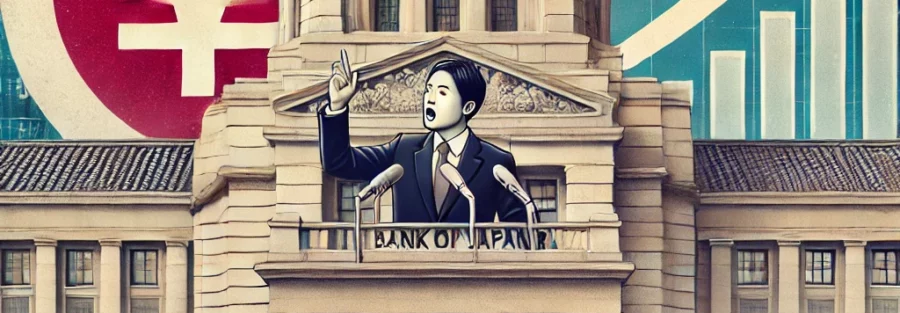The Bank of Japan (BOJ) should raise interest rates to at least 1% to reverse the “abnormally” large stimulus that is contributing to a weakening yen, according to Takeshi Shina, the shadow finance minister of Japan’s largest opposition party.
In an interview with Reuters on Thursday, Shina argued that the central bank should gradually normalize monetary policy and communicate its intentions clearly, as the current short-term policy rate of 0.25% is well below the neutral level for the economy.
“The BOJ’s mandate is to ensure price stability, but it is failing to do so as the widening U.S.-Japan interest rate gap drives the yen down, pushing up living costs,” Shina said. He has been a vocal critic of the BOJ’s ultra-loose monetary policy.
“The BOJ should steadily raise rates to 1% in multiple stages to reduce excessive monetary stimulus,” Shina added.
As a member of the lower house’s financial committee, Shina has regularly called on BOJ governors, including current governor Kazuo Ueda, to appear before parliament to answer questions about the central bank’s policies.
Shina’s comments underline ongoing concerns among politicians about the negative impact of a weak yen, which will likely continue to be a significant topic of debate. These concerns complicate the timing of the BOJ’s next rate hike.
Shina also noted that Japan’s neutral interest rate — the level that neither stimulates nor cools economic growth — is at least 1%. He argued that raising rates to this level should not be considered tightening but rather a correction of the excessive stimulus.
He suggested that gradual rate increases would help reverse the yen’s decline, which has driven up import prices, inflated the cost of living, and kept real wage growth low. “Except for a few large manufacturers, no one in Japan is happy with the current yen levels,” Shina said, adding that he would continue to push the BOJ to normalize its policy.
On Thursday, the dollar surpassed 156 yen for the first time since July, driven by expectations that U.S. president-elect Donald Trump’s policies could spur inflation, extending the Federal Reserve’s rate-cutting cycle. Since 2020, the yen has fallen around 30% against the dollar on a real, trade-weighted basis, according to BOJ data.
Shina, a member of the Constitutional Democratic Party of Japan (CDPJ), which gained significant influence following a major victory in the October 27 general election (although still lacking a majority), has long criticized former BOJ Governor Haruhiko Kuroda’s aggressive stimulus policies, which he believes have harmed financial institutions and distorted market functioning.
Shina also advocated for a more flexible inflation target, suggesting that the BOJ should replace its current 2% target with a more adaptable goal that would allow the central bank to adjust policy as long as inflation remains positive. He emphasized that the BOJ and the government must work together to achieve positive real wage growth.
“It’s crucial for the BOJ to normalize its policy and set an inflation target that aligns with this goal,” Shina said.
The BOJ made a significant move away from Kuroda’s stimulus in March, raising short-term interest rates to 0.25% in July, with the belief that Japan was on the verge of sustainably reaching its 2% inflation target.





